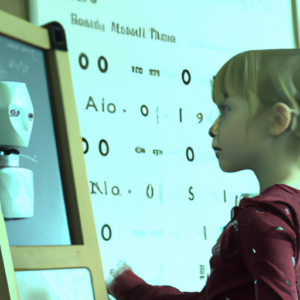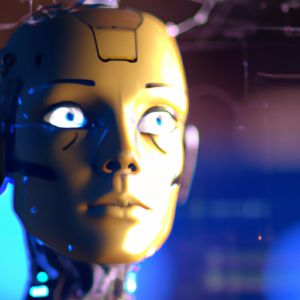AI Operating Systems: The Future is Closer Than We Think

Artificial Intelligence (AI) has come a long way in recent years, and its impact on our lives has been growing at an exponential rate. One of the latest developments in this field is the concept of AI operating systems, which has been popularized in popular culture through movies like “Her”. The film tells the story of a man who falls in love with an advanced AI operating system, and it raises important questions about the future of human-computer interaction. But just how close are we to realizing this type of operating system in our lives?
First, let’s define what an AI operating system is. It’s a type of software that can understand and respond to natural language, recognize patterns and trends, and perform tasks that would normally require human intervention. AI operating systems are designed to be intuitive and user-friendly, with the goal of making technology more accessible to everyone.
The idea of an AI operating system is not new, and in recent years, we have seen a growing number of companies experimenting with this technology. For example, virtual assistants like Siri and Alexa, which are integrated into smartphones and smart speakers, are considered early examples of AI operating systems. These virtual assistants can perform a wide range of tasks, from answering questions to playing music and setting reminders.
In the near future, we can expect to see AI operating systems become even more advanced and integrated into our daily lives. For instance, AI operating systems could be used to control our homes, cars, and other devices, making them more efficient and convenient. They could also be integrated into healthcare systems, helping to diagnose and treat patients more effectively.
However, there are also important ethical and societal questions that need to be addressed when it comes to AI operating systems. For example, how will these systems impact employment, and what kind of privacy concerns will they raise?
Despite these challenges, the development of AI operating systems is an exciting and rapidly growing field, and we can expect to see more and more advancements in the coming years. While the technology may not be as advanced as the operating system in the movie “Her” just yet, it’s clear that the future of AI operating systems is bright. The technology is becoming more sophisticated, and the potential applications are endless.
In conclusion, the development of AI operating systems has the potential to revolutionize the way we interact with technology and improve our daily lives. While there are still many questions that need to be addressed, we can expect to see significant advancements in this field in the near future. So, keep your eyes peeled – the future of AI operating systems is closer than you think!







